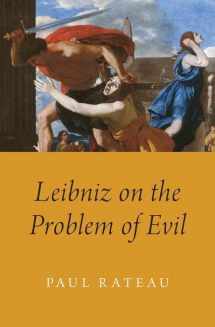
Leibniz on the Problem of Evil
Book details
Summary
Description
Paul Rateau traces the genesis and development of G.W. Leibniz's treatment of the problem of evil, from his earliest writings through the Essays on Theodicy (1710). By investigating Leibniz's early thinking about what evil is and where it comes from, Rateau reveals the deeply original nature of Leibniz's later work and the challenges it raises. Rateau explores the ways in which the Theodicy's theoretical project, which integrates numerous disciplines and various argumentative strategies, informs and is influenced by two more practical aims-justifying the end of denominational divisions between Catholics and Protestants, and inculcating "true piety" in believers. By paying equal attention to both Leibniz's intellectual and personal development, Rateau offers a holistic view of Leibniz's most profound and sophisticated work of philosophy.
Rateau shows how the young Leibniz moves from suggesting that the author of evil is God himself to later defending an original theory of necessitarianism (in The Confession of a Philosopher), which makes God the first link in the chain of beings that constitute the world, but which ultimately denies God's responsibility for sin. By examining Leibniz's theoretical development after 1673, he demonstrates how Leibniz comes to a revised framework that forms the basis for the project of theodicy. After having examined the defensive and the doctrinal aspects of the Theodicy, Rateau shows how human freedom can be reconciled with divine freedom in Leibniz's system. Newly translated from the original French edition, Rateau's book offers a novel and important new interpretation of Leibniz and will appeal to scholars both of Leibniz and of early modern thought generally.


We would LOVE it if you could help us and other readers by reviewing the book
Book review



